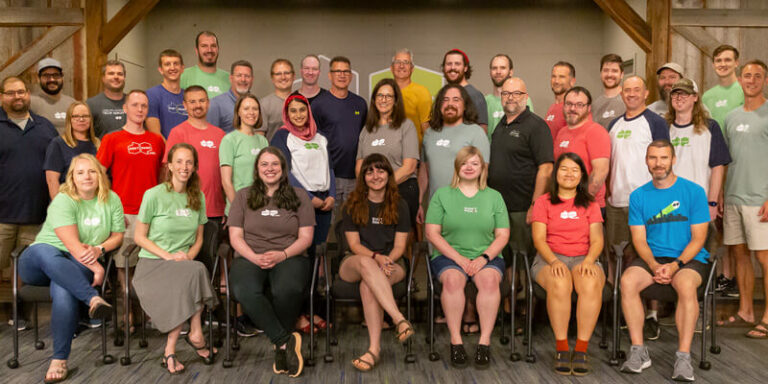
Helpful Sales & Marketing That’s Actually Helpful
It’s easy to have a negative reaction when we hear the words “marketing” and “sales”. But why does this happen?
We’ve all bought a product that didn’t live up to the hype or our expectations; were annoyed by the pushy sales-guy trying to earn a commission; or were perplexed by the maddening string of “sales”, coupons, and promotions at a retail store. Once we’ve had one of these negative experiences, it’s hard to forget, especially if we feel taken advantage of. It lingers as it also takes multiple positive experiences to overcome. It’s no wonder that our defense mechanisms go up when we start to think or talk about these disciplines.
The role I’m in now is the first time I’ve been full-time performing business development. When I’ve called on some prospects, I’ve seen first-hand the damage that’s been done by past poor experiences. In the same way we approach our development processes here at Don’t Panic Labs, I’ve been highly-motivated to perform business development differently. Here’s a few principles we try to apply:
- Empower Employees to Do the Right Thing. Sales and marketing tactics are largely influenced by company values, strategy, and targets. We saw the recent Wells Fargo scandal as a prime example of company targets as the root of unethical behaviors. By and large, individuals in these professions want to do right by the customer and organization. It’s up to the company to ensure the right environment for these decisions and actions to happen.
- Be Helpful Above All Else. A mentor of mine described the core of marketing as “bringing companies and customers closer together”. Could it really be that simple and straightforward? If so, sales then becomes about structuring the arrangement so that companies and customers both benefit from the transaction. With this mindset, it seems natural that the core focus should be to be genuinely helpful at all points of the process. So naturally, you’ll find us sharing our knowledge at conferences, sharing articles on social media, and even simply meeting with other software engineering professionals to talk shop. For us, that may even mean recommending a competitor or someone else to perform the services when we’re not in the best position to meet someone’s needs.
- Give First and Don’t Expect in Return. Unlike many of the software development shops, we put together proposals at no-cost to the customer. It’s our opportunity to be genuinely helpful when someone is exploring a software solution. It’s critical to us that we form the right relationships. This practice makes it easy for both parties to determine if there’s a good fit—and move on if there isn’t.
- Don’t Cut “Special” Deals. No matter how large or small the community is, word spreads both on how you treat a customer as well as the rates you charge. For that reason, we don’t want any of our customers to discover that we’ve cut someone else a “special deal”. That doesn’t mean that every customer is paying the same rate—we have different offerings that contribute different amounts of value. So naturally, those would have different rates. But at the end of the day, we strive to ensure that all customers are charged the same rates for the same services.
I hope this shares a little insight into how we think about marketing and sales at Don’t Panic Labs. What positive values or practices do you use (or have you experienced)?



